The 81st Annual Academy Awards nominations were announced Thursday in Beverly Hills, California. It is a poor showing, taken as a whole. For the most part, the movies are a collection of amorphous and rather complacent works, not challenging artistically and sadly lacking in their approach to the complexities of life.
A rapidly unfolding economic disaster and the suffering it must cause millions and millions of people, with all the explosive political implications, probably would make “last year’s films” seem pale and inadequate under the best of circumstances. And the present condition of the American and global film industry is hardly the best of times. As it is, the nominated movies for the most part feel decidedly “behind the times,” and, in some cases, simply irrelevant.
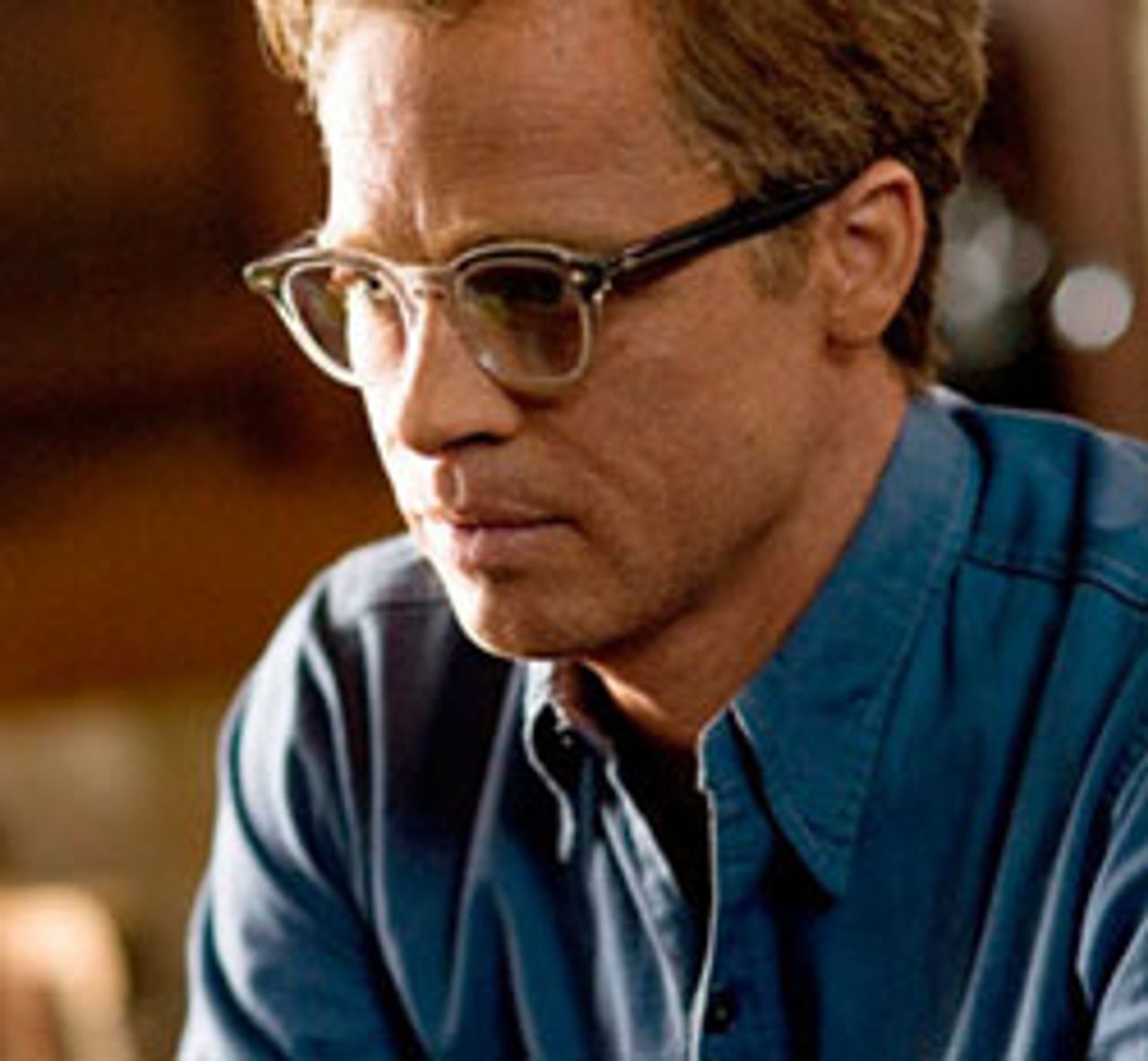 The Curious Case of Benjamin Button
The Curious Case of Benjamin Button
David Fincher’s The Curious Case of Benjamin Button received the most nominations with 13 in all, including Best Picture, Best Director and Best Actor for Brad Pitt. Only two films in Academy Awards history, Titanic and All About Eve, have received more nominations, with 14 going to each. It seems rather arbitrary that this peculiar film should obtain so much recognition, a sign, in its own way, of a kind of mental and moral exhaustion.
Danny Boyle’s Slumdog Millionaire, about a teenager who fights his way out of the slums of Mumbai to win 20 million rupees on a popular game show, received 10 nominations, including Best Picture, Best Director and Best Adapted Screenplay. The images of poverty-stricken India are the strongest feature here.
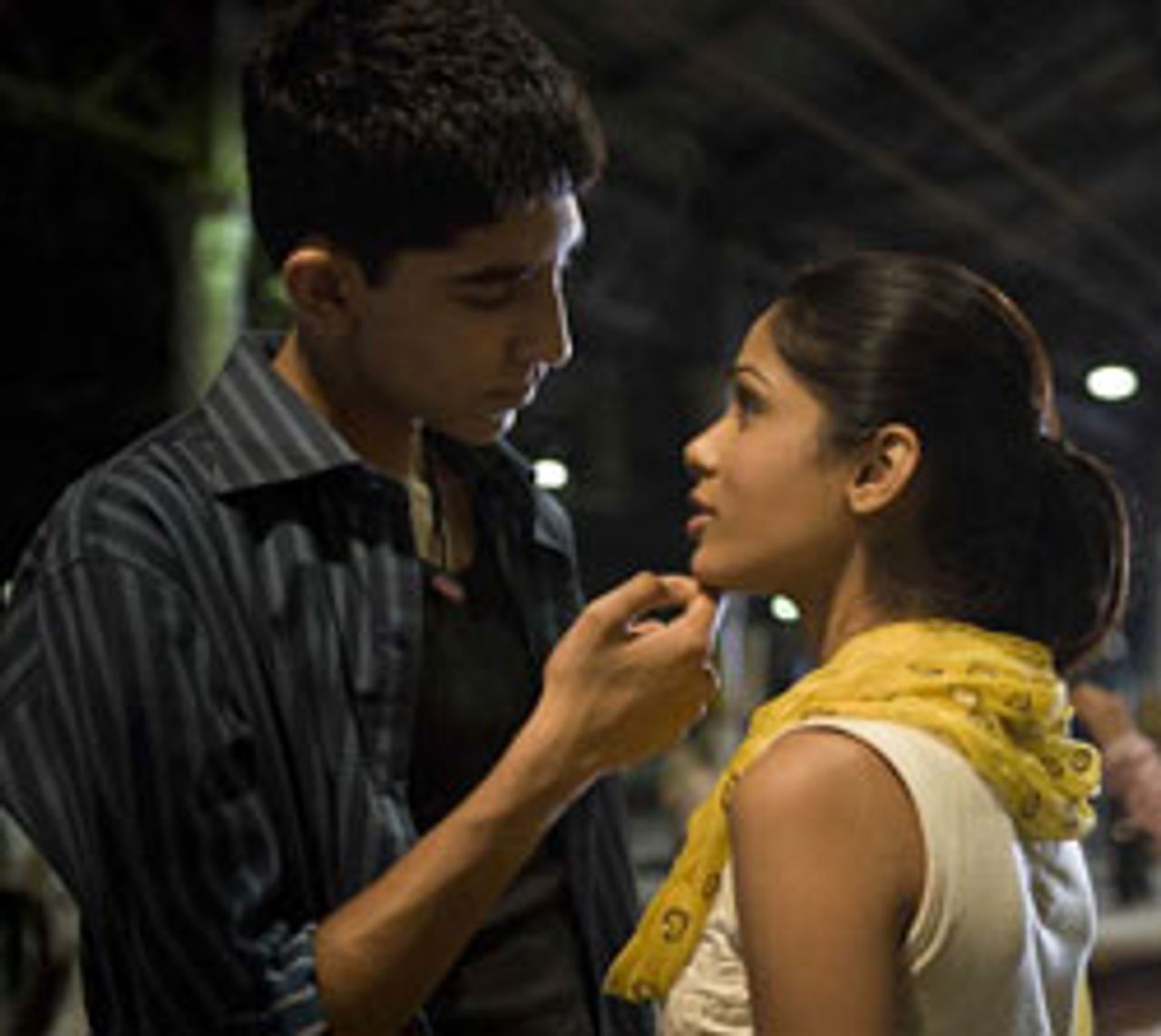 Slumdog Millionaire
Slumdog Millionaire
Many of the nominations came as no surprise, as most of the films had become the much-talked-about favorites of critics and various other sources in the mainstream media. Among these, The Wrestler, Doubt and The Reader all picked up nominations in significant categories.
While there were few surprises among the nominations, among the unexpected bright spots was Melissa Leo’s nomination for Best Actress in Frozen River. Leo gave an excellent performance in the film about a struggling working class mother who turns to smuggling “illegal” immigrants so she can afford a new home for her children. Leo deserves to be recognized. Her performance rang profoundly true.
The nomination of Robert Downey Jr. as Best Supporting Actor for his satirical performance as a white Australian actor cast to play an African-American character in a ridiculous Hollywood war film, Tropic Thunder, was also a welcome surprise. Sean Penn and Richard Jenkins in Milk and The Visitor, respectively, were worthy nominations.
British director Mike Leigh’s Happy-Go-Lucky, one of the best films of the year, was nominated for Best Original Screenplay, which Leigh also wrote, but did not receive nominations in any other category.
Waltz With Bashir, the animated documentary film by Israeli director Ari Folman about the 1982 Israeli invasion of Lebanon and the mass slaughter of refugees in the Sabra and Shatila camps, was also one of the best films released in 2008, and especially timely considering the latest assault on Gaza by the Israeli military. This intelligent and disturbing film was nominated in the category of Best Foreign Language Film. It was not, however, nominated in any other category.
The nomination of the late Heath Ledger, for his performance as Batman villain The Joker in The Dark Knight, was all but inevitable. Many no doubt wish to honor the talented young actor who died tragically in January 2008 at the age of 28. It has to be said, however, that The Joker is one of the least serious of Ledger’s roles and performances. One regrets the efforts of those in the media to make this role the one for which he is remembered.
The Best Pictures?
The films nominated for Best Picture have all won critical acclaim, and there are intriguing moments in each. However, none of them is a fully worked-out and coherent artistic effort. It would be impossible to consider any of these films among the best films of 2008 by any objective standard.
The WSWS has commented on all the nominees for Best Picture. This is what we had to say.
Of The Curious Case of Benjamin Button, (See “The Curious Case of Benjamin Button”: Too little made of a life led in reverse), about an individual who ages backward, we wrote, “Too much effort is squandered on special effects and other visual ‘eye candy,’ while the big questions are left unanswered and unexplored.
“The greatest weakness of Benjamin Button is that it remains on the surface of great historical events and never dives into the psychology of its characters. Many of the people Benjamin meets, like his ‘timeless’ love Daisy, seem to float on the great canvas of the twentieth century. To examine how the times could have affected the various personalities and their outlook on the world is something that Fincher is unwilling or unable to do. This is a work outside history in any real sense.”
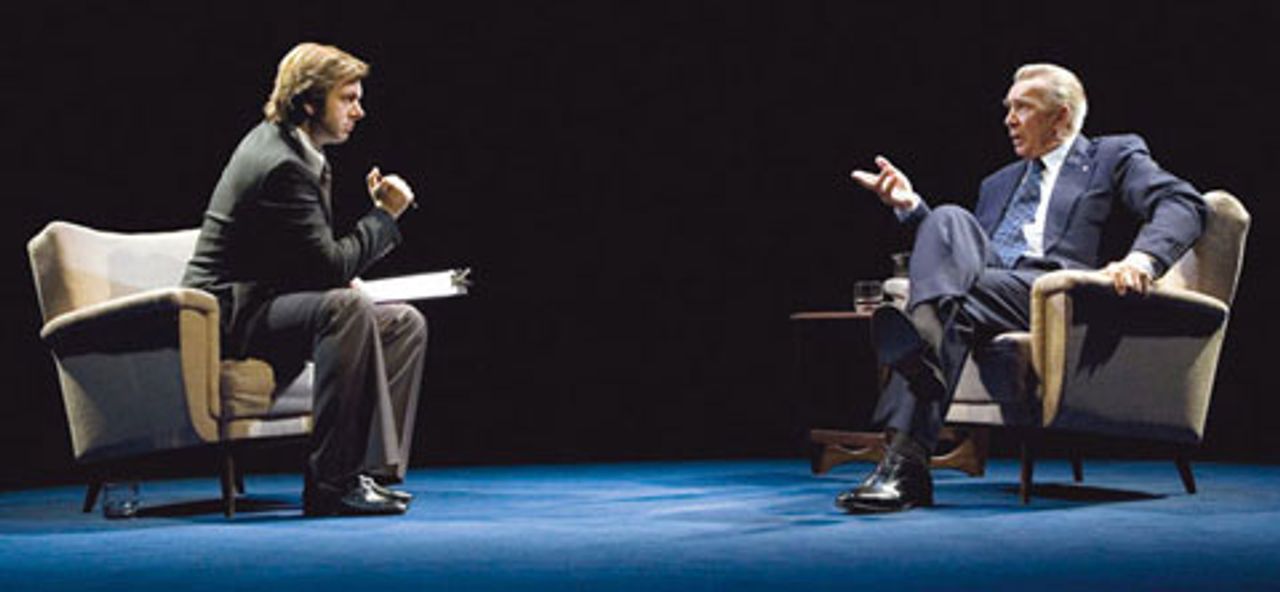 Frost-Nixon
Frost-Nixon
The WSWS review commented about Frost/Nixon —which all but rewrites history, casting a televised interview between host David Frost and former president Richard Nixon as a clash of the titans—that “[I]n the hands of Ron Howard, this tawdry bargain between a political gangster and a media huckster is presented as though it were the latest installment of Sylvester Stallone’s Rocky franchise, with Frost as the underdog, bloodied fighter and Nixon in the role of Apollo Creed. Frost—played with far greater sympathy than he deserves by the appealing Michael Sheen—is shown overcoming financial and political obstacles, his own mistakes and the intransigent opposition of Nixon himself to achieve a journalistic knockout just before the bell.”
In fact, Frost’s interviews of Nixon devoted little time to the major crimes of the latter’s administration or the historical context in which they took shape.
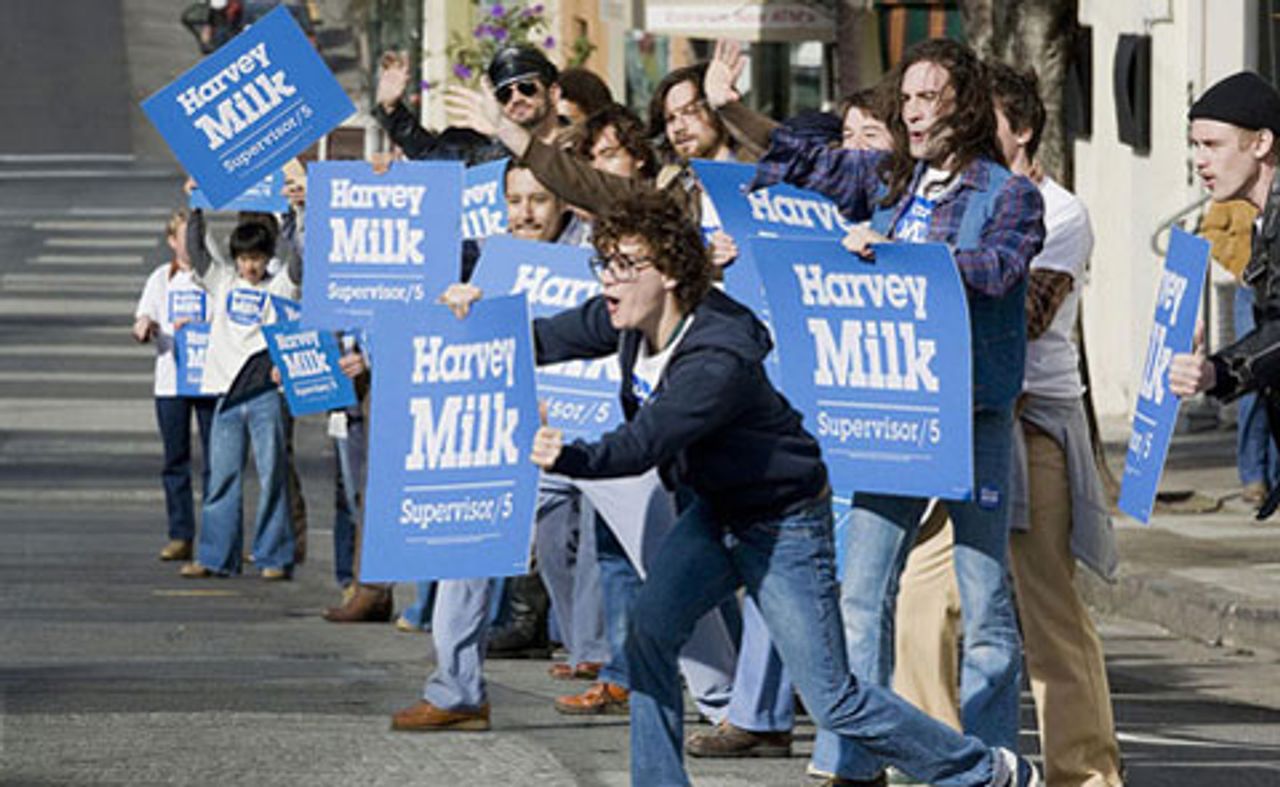 Milk
Milk
Milk tells the story of Harvey Milk, the first openly gay politician elected to major office in the United States. The work, directed by Gus Van Sant, contains strong performances by its cast, but finds itself accepting uncritically the reformist, identity politics of Milk himself. We wrote “There is no consideration by the filmmakers of an alternative method of tackling the oppression of minorities as part of the conditions facing the entire working class under capitalism. To be frank, the identity politics espoused by Milk would be taken for granted by the vast majority of gay rights supporters.
“So, whether Van Sant is critical of Milk joining the establishment or not (and there are hints that he is), the latter’s politics are the film’s default setting.
“The artistic consequence of all this is a distinct unevenness. There are moments that feel quite heartfelt and acute, especially those dealing with the conditions of gay youth and with Milk’s embrace of his sexuality. At other times the director seems to be doing what he thinks people expect him to do, celebrate this or that minor electoral victory, and everything feels rather bland and predictable; at such moments Van Sant seems to be going through the motions.”
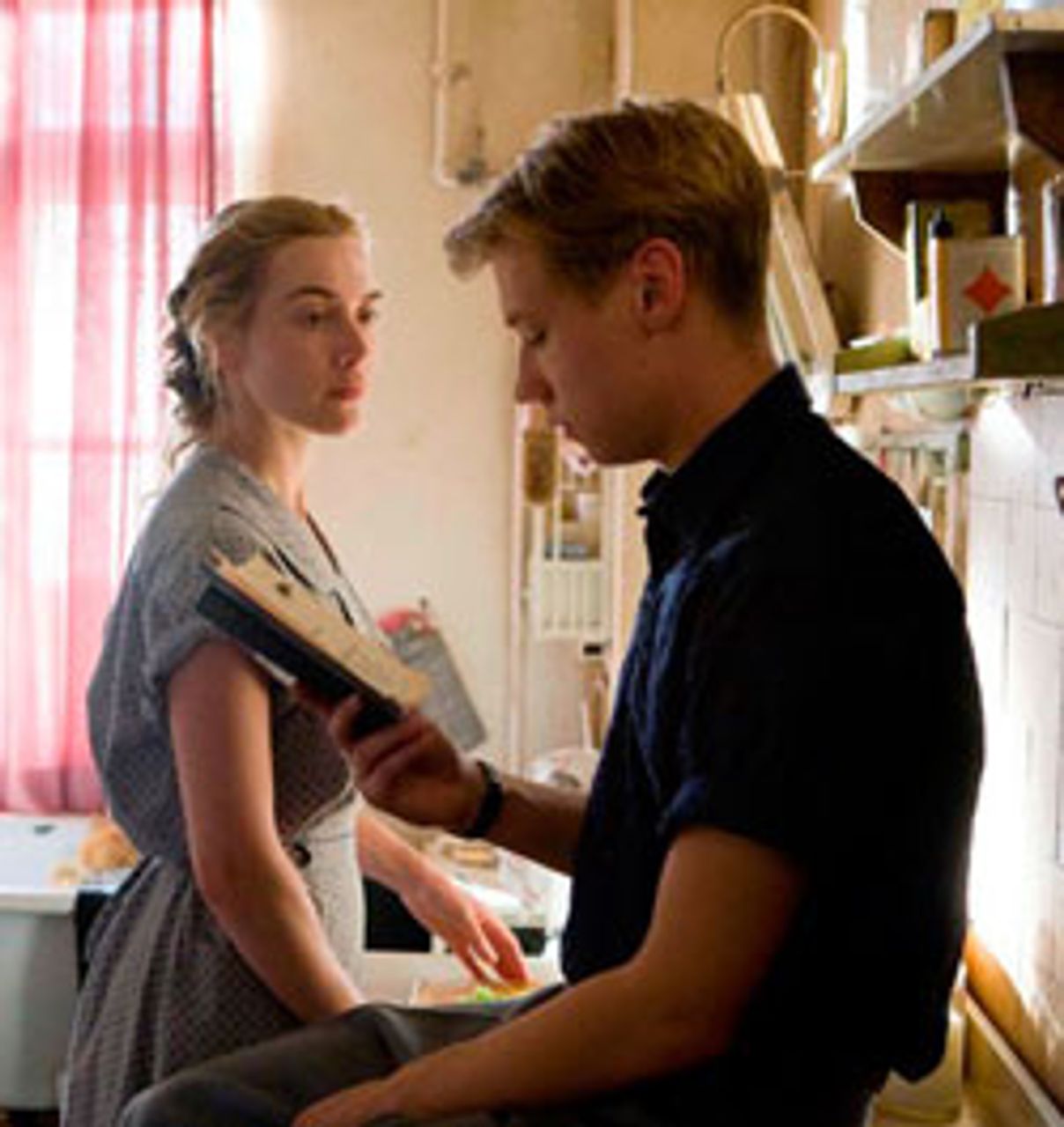 The Reader
The Reader
The Reader, directed by Stephen Daldry, centers on a man who discovers the woman with whom he had an affair in the 1950s is now, years later, on trial for war crimes committed while a concentration camp guard during the Second World War. Although the film’s subject, the aftermath of the Holocaust, is worthy and welcome, The Reader is, as we observed in our review of the film, “essentially a contrivance that toys with the notion of German collective responsibility for the crimes of fascism.
“The Reader’s cast members are asked, in effect,” we noted, “to embody the film’s essential premise, that the sum-total of individual German psychologies, adding up to a state of national passivity and blindness, was to blame for the extermination of the Jews.
“No actor could do that, because it wipes out a complex historical process—especially the various concerted attempts at revolution in Germany between 1918 and 1923, and the subsequent degeneration of the mass Communist Party in particular—and the personalities produced by that process. It replaces the latter with contrived, schematic figures who are expected to somehow stand for ‘fatally flawed Germans.’”
Danny Boyle’s Slumdog Millionaire , about a slum kid from Mumbai who struggles to reunite with his true love and win top prize on the “Who Wants to be a Millionaire” game show, is moving in those scenes in which it treats the conditions of life for children living in the slums, but soon leaves them behind in favor of the “timeless” love story that then takes center stage and pulls at the heart-strings.
“One also has definite reservations,” we wrote in our review of the film, “about what Jamal’s game show appearance is meant to communicate. There is a populist sentiment at work in depicting his victory over the game, with its mean-spirited host mocking Jamal’s intelligence at every turn. No, the film suggests, Jamal isn’t the product of higher education, but a real education in the real world out there on the streets. Just watch what he can do. He will outsmart your system and get his 20 million rupees even if all the odds are stacked against him.
“As an expression of social anger and resentment, such a view may have its place, but the implication that serious knowledge and education are not necessary for someone like Jamal to make his way in the world, much less fight against his condition, is lazy and retrograde.”
These works, on the whole, are not up to the task of confronting and illuminating life. It will be interesting to see, several years from now, where the state of film will be and how the present works will be remembered.
